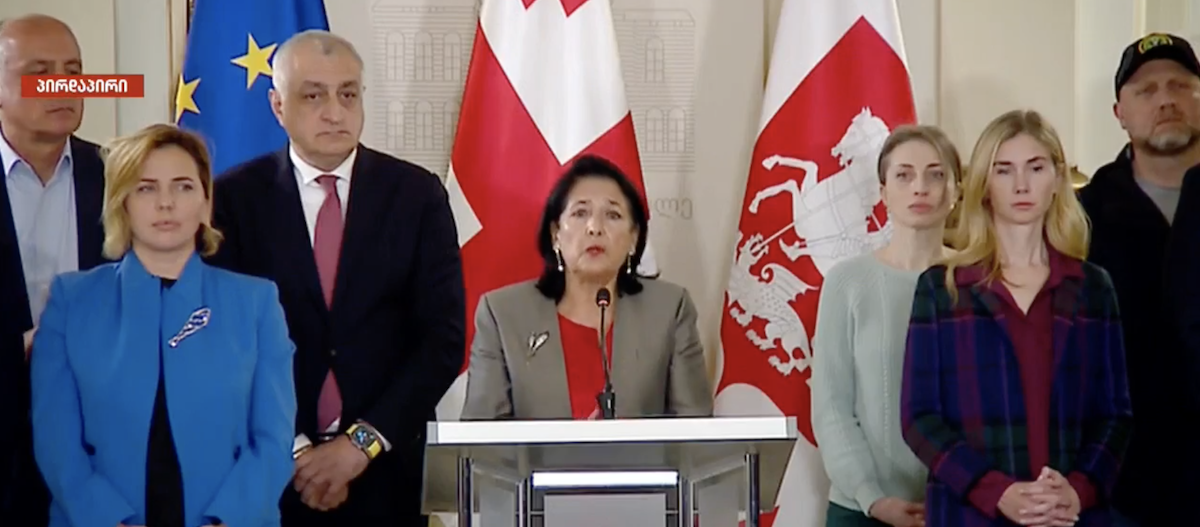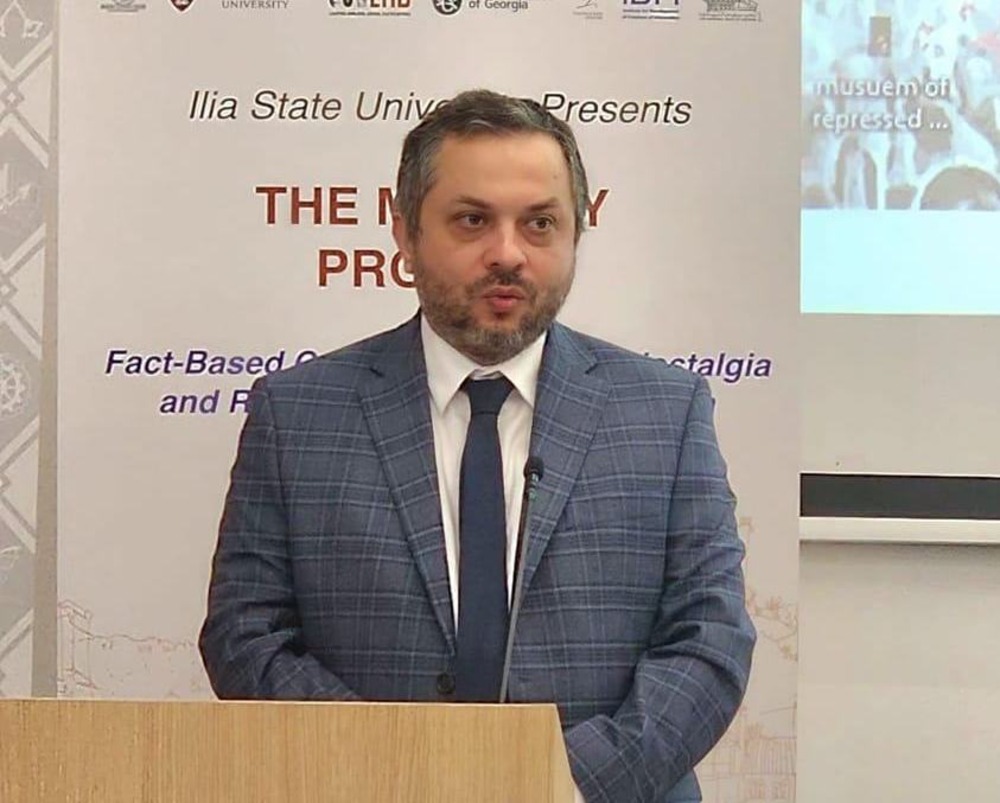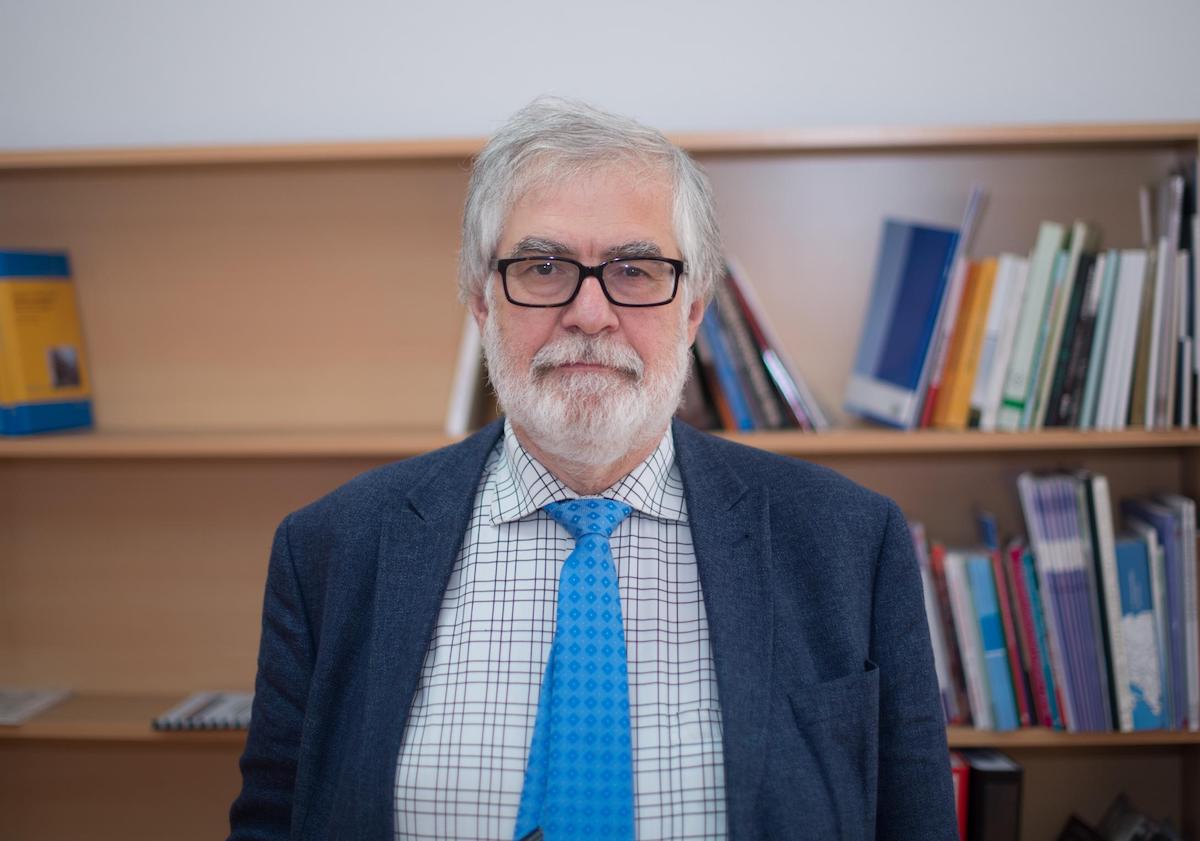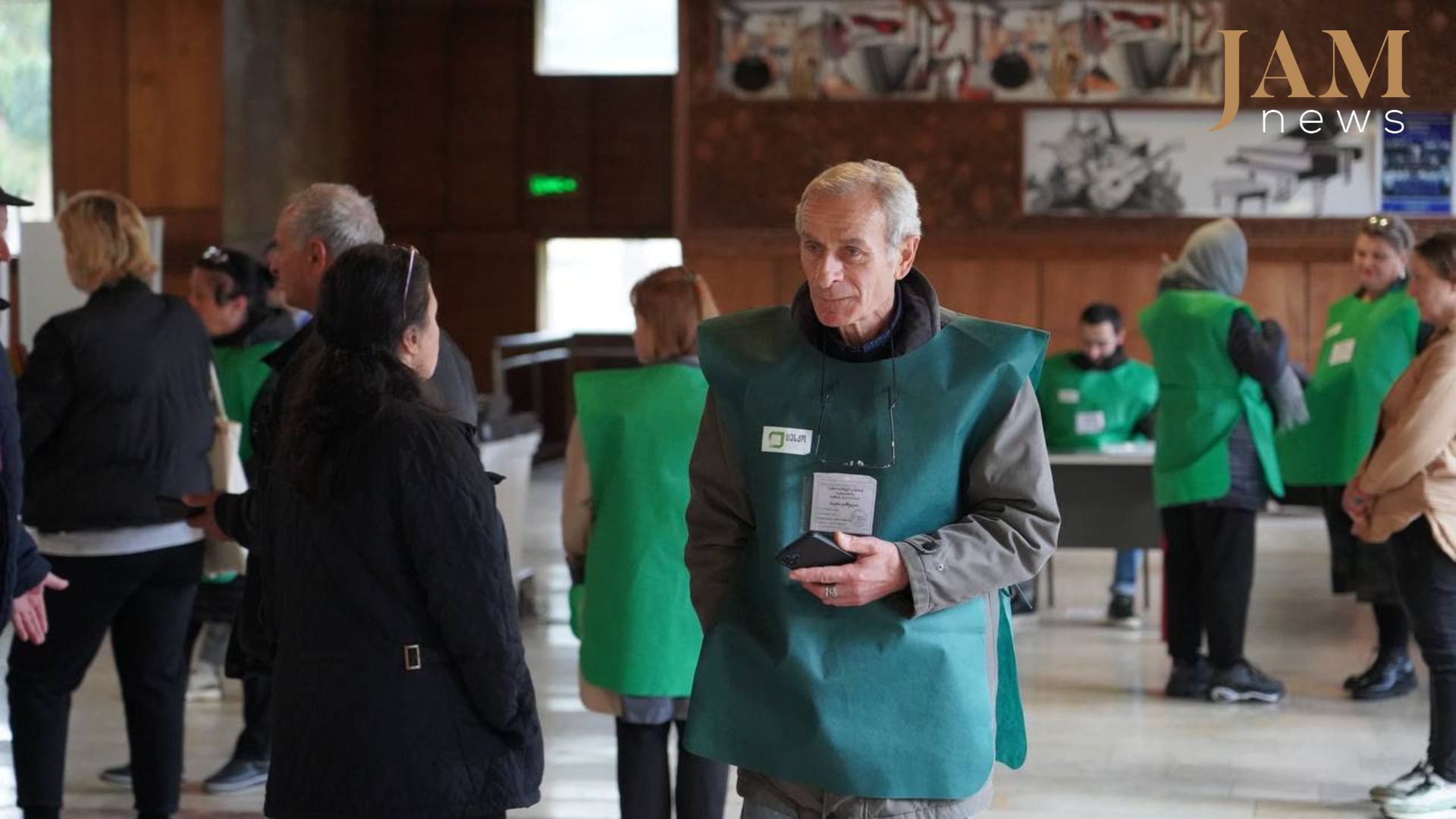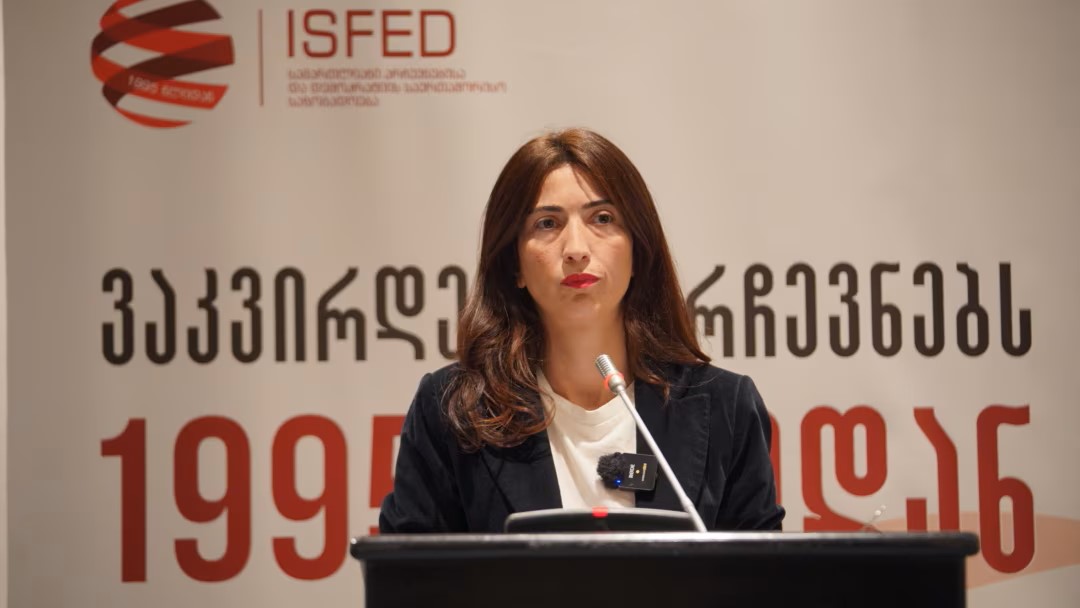Over 100,000 people gathered in Tbilisi for a protest against election fraud. The West is in no hurry to recognize the results
A rally against election fraud in Georgia
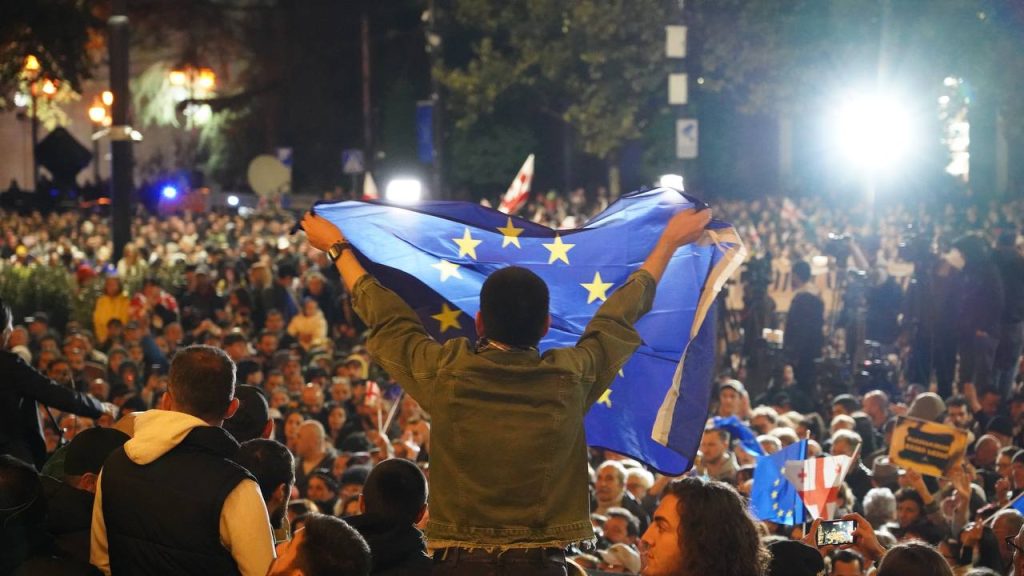
Around 100,000 people gathered in Tbilisi on Monday evening in front of the parliament building to protest the results of the October 26 parliamentary elections.
The Central Election Commission declared the ruling party, “Georgian Dream,” the winner with nearly 54 percent of the vote.
Exit polls painted a different picture: “Georgian Dream” received no more than 42 percent of the vote.
Most observers agree that the victory of the ruling party’s leader, oligarch Bidzina Ivanishvili, effectively shifts Georgia’s course from pro-Western to pro-Russian.
The initiator and leader of yesterday’s rally was Georgian President Salome Zourabichvili. In her October 27 statement, she called the election a “Russian special operation,” “entirely rigged,” and declared it illegitimate. She also labeled the “Georgian Dream” government as illegitimate.
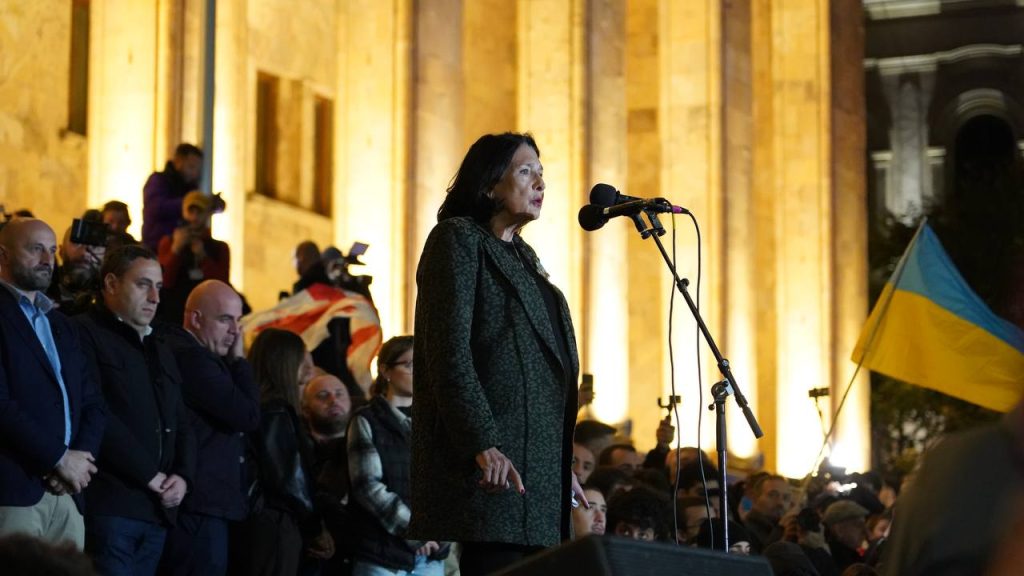
At the rally, Zourabichvili also called on the West to support the Georgian people and not recognize the elections as legitimate.
Representatives of all four opposition parties that entered parliament attended the massive rally.
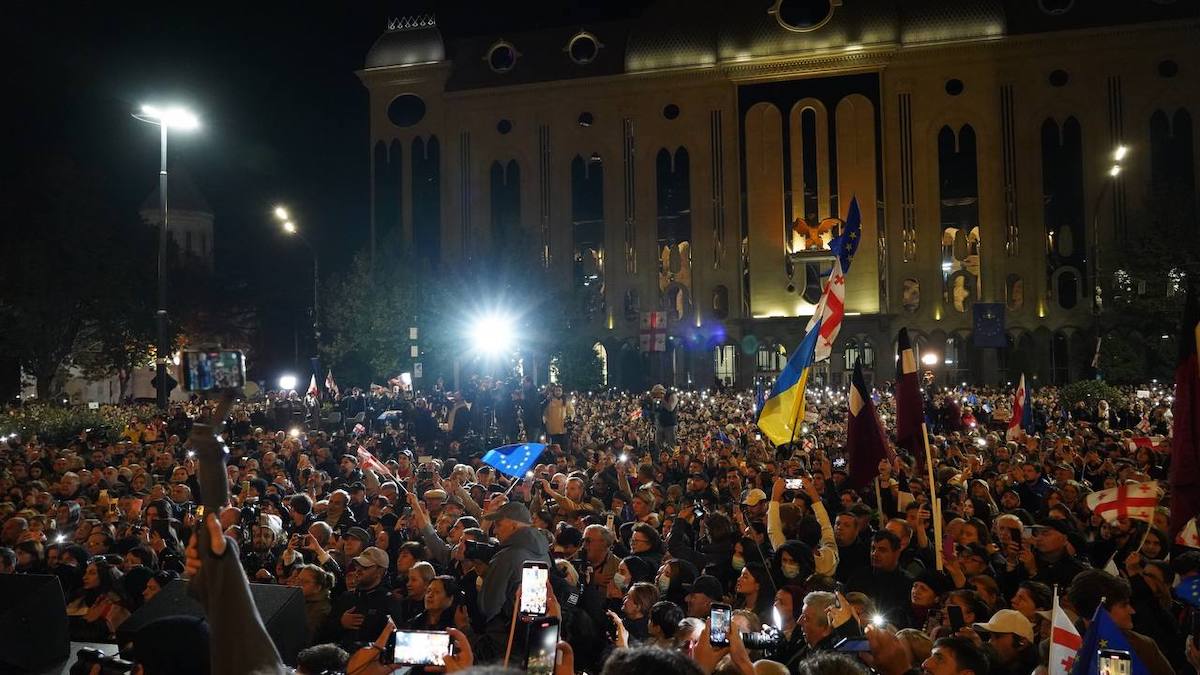
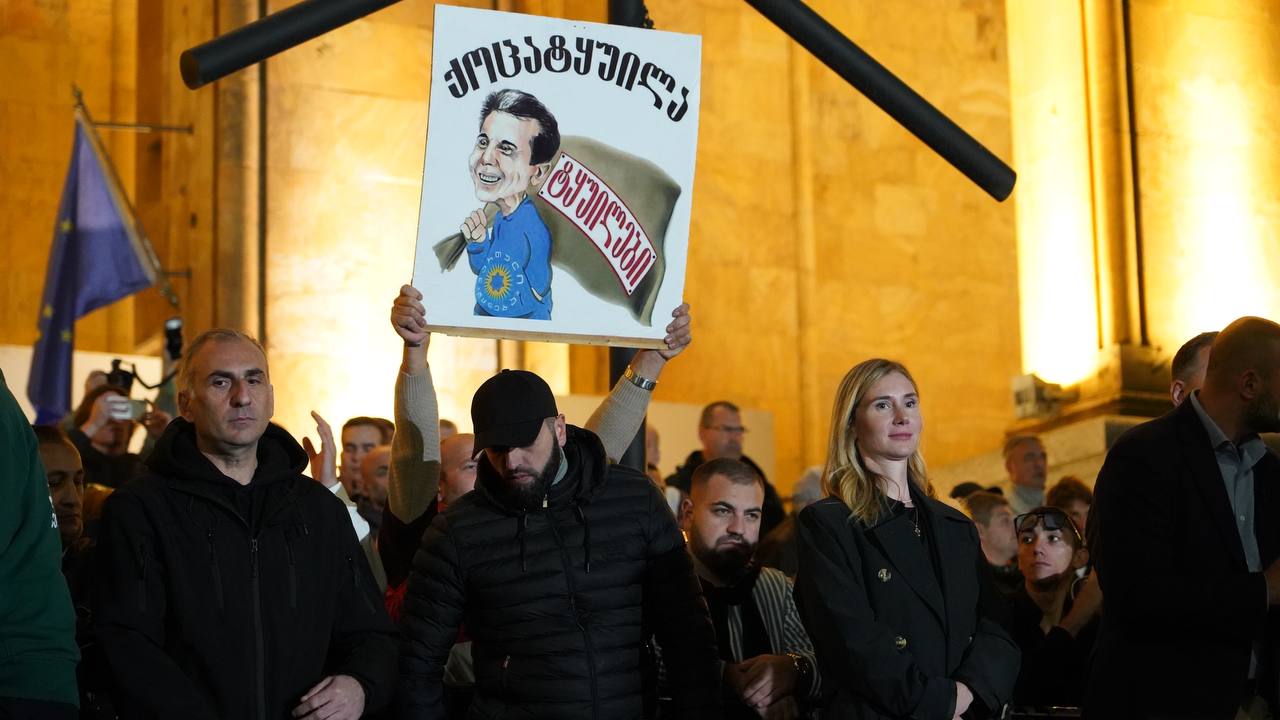
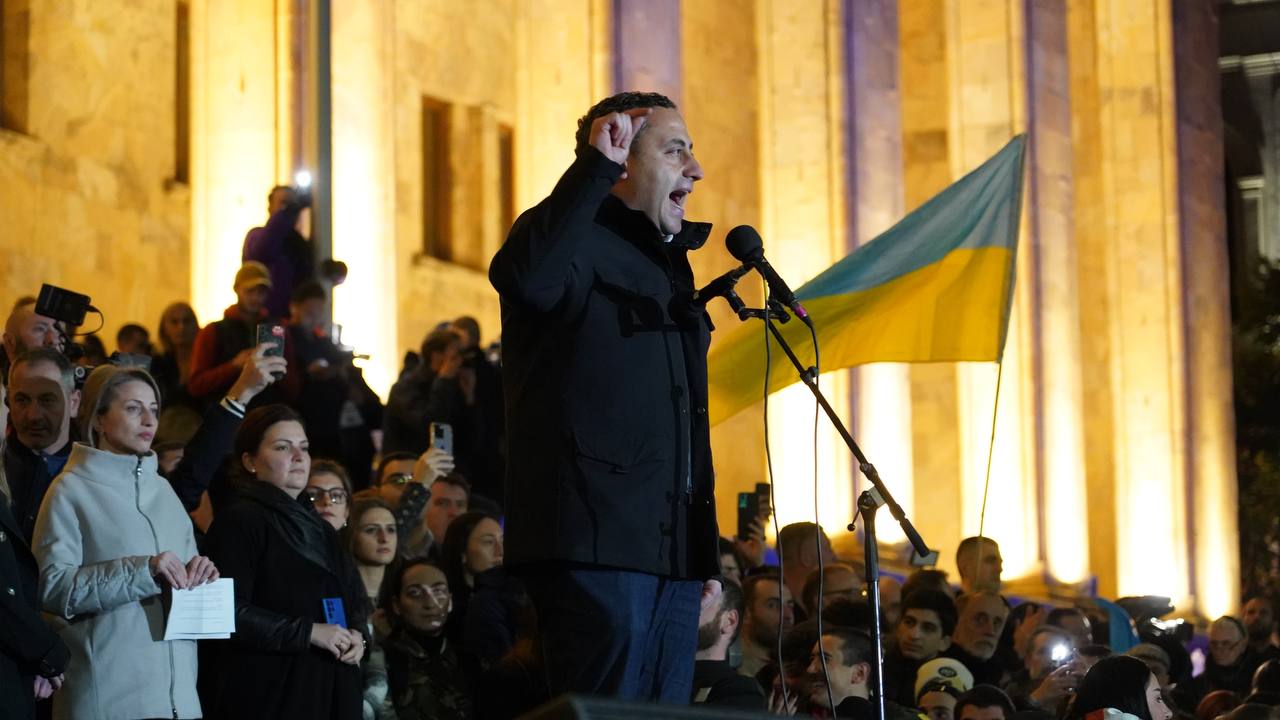
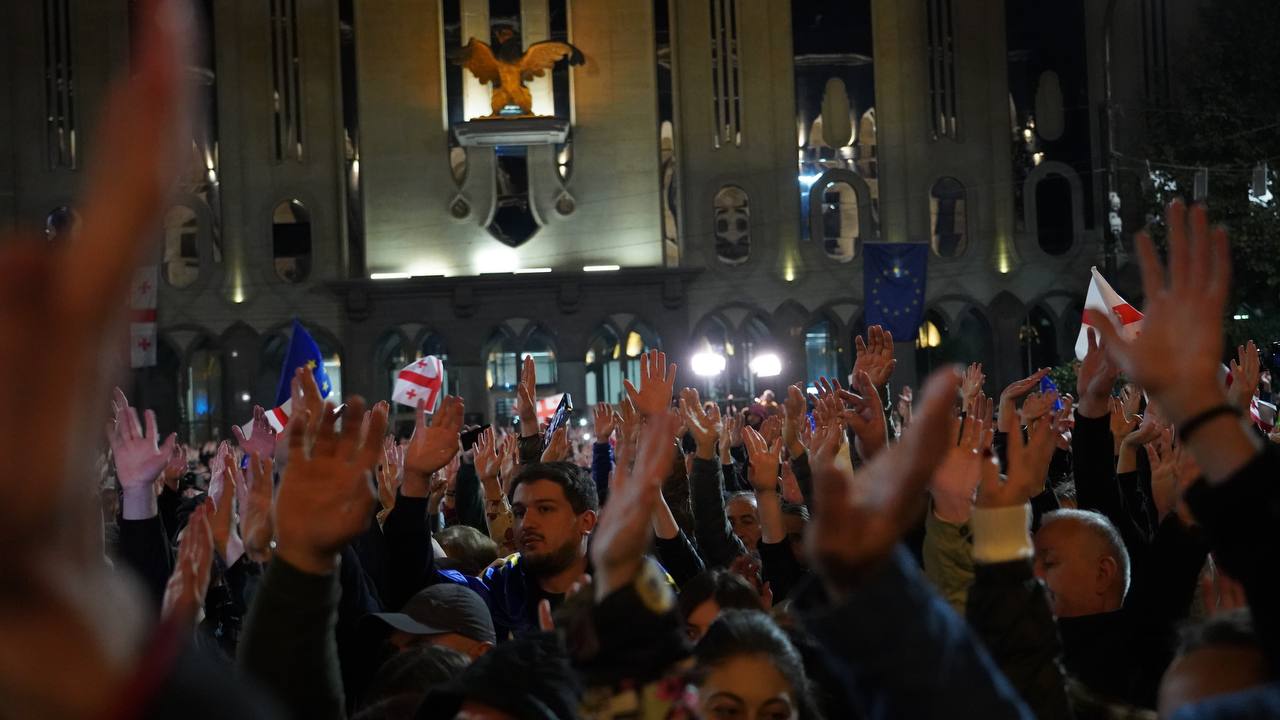
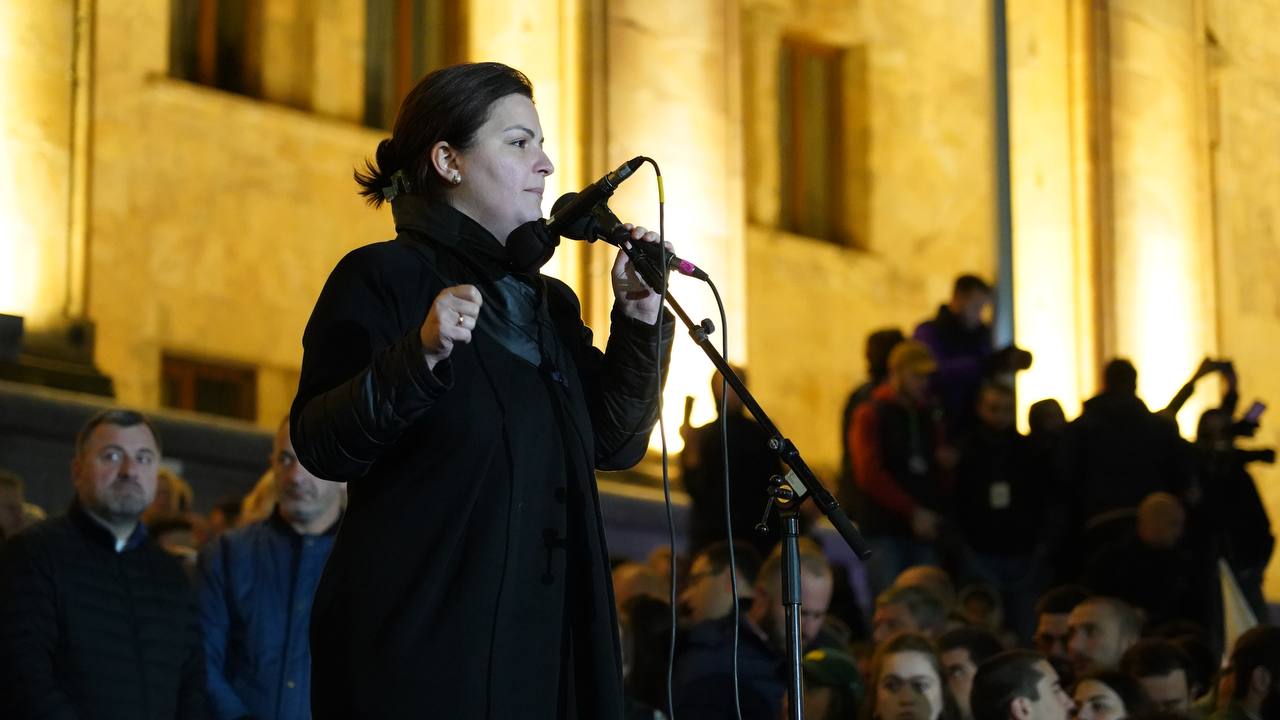
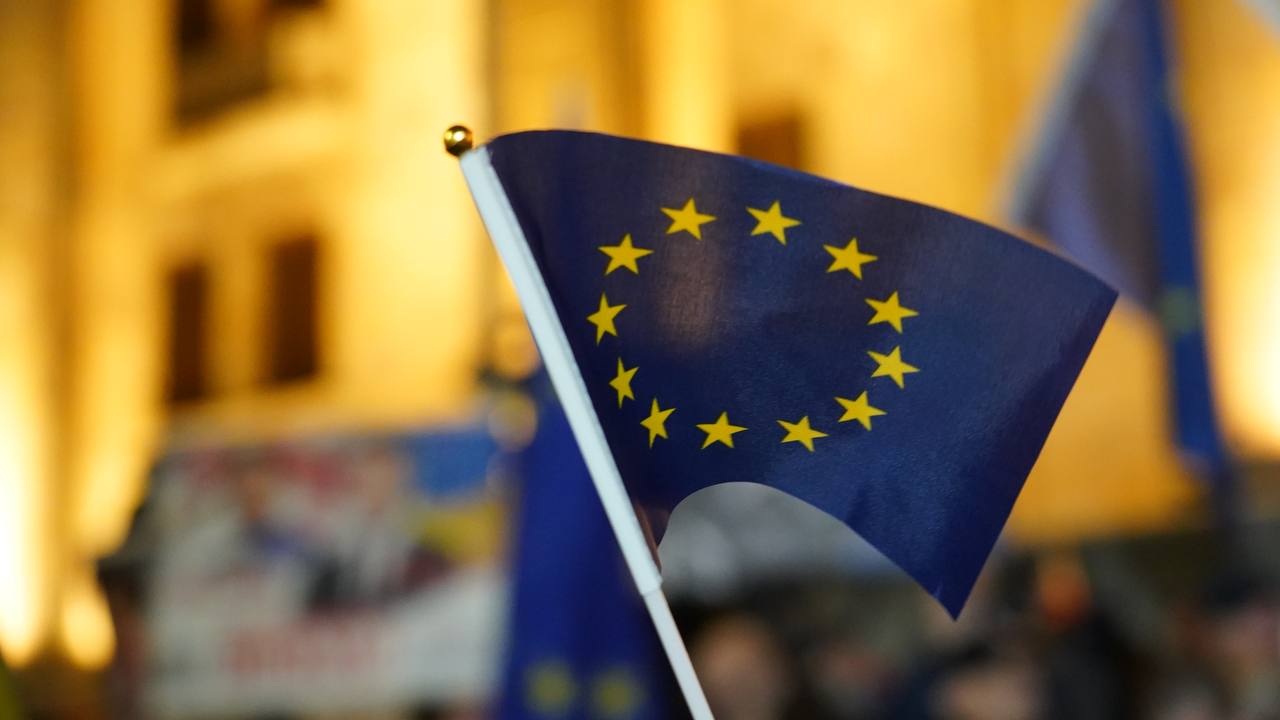
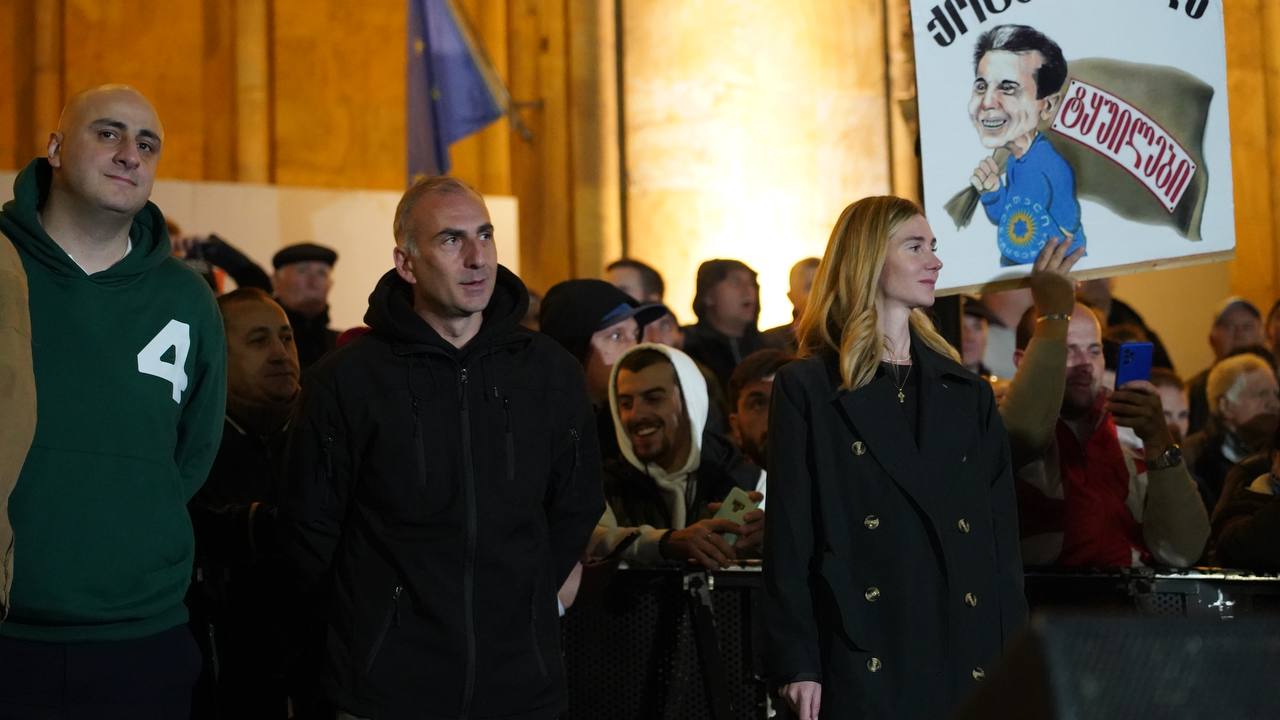
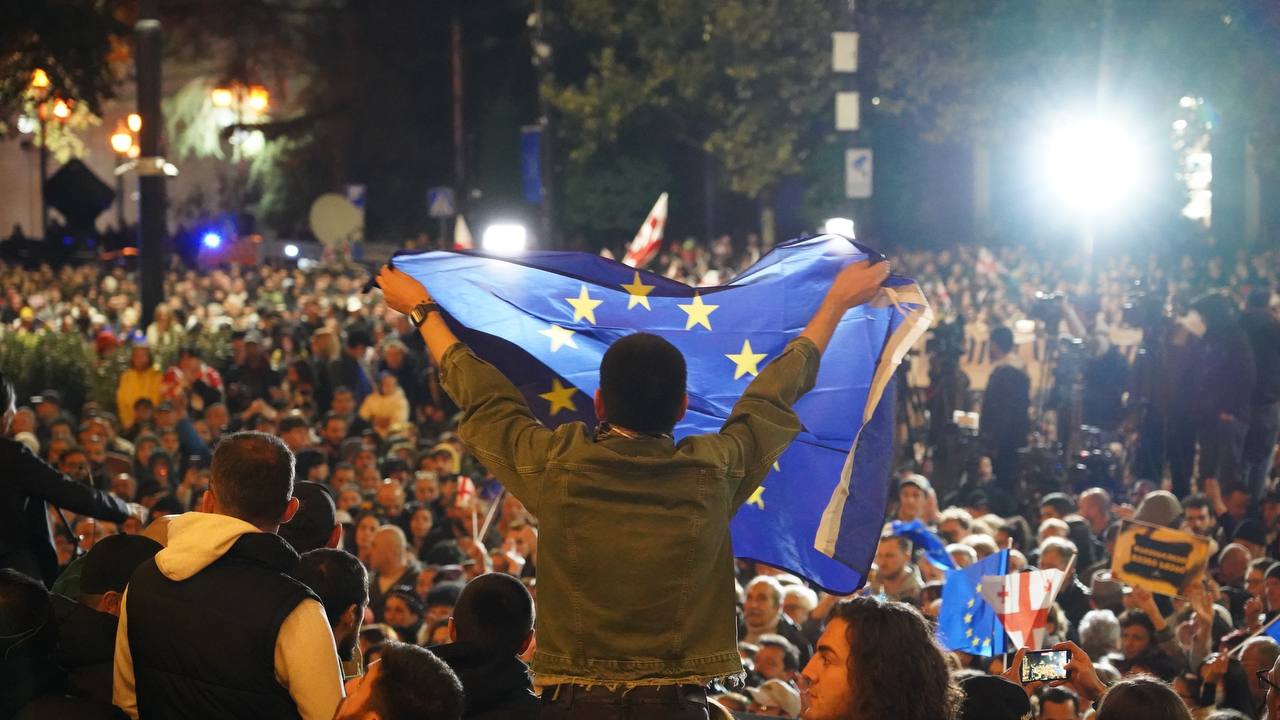
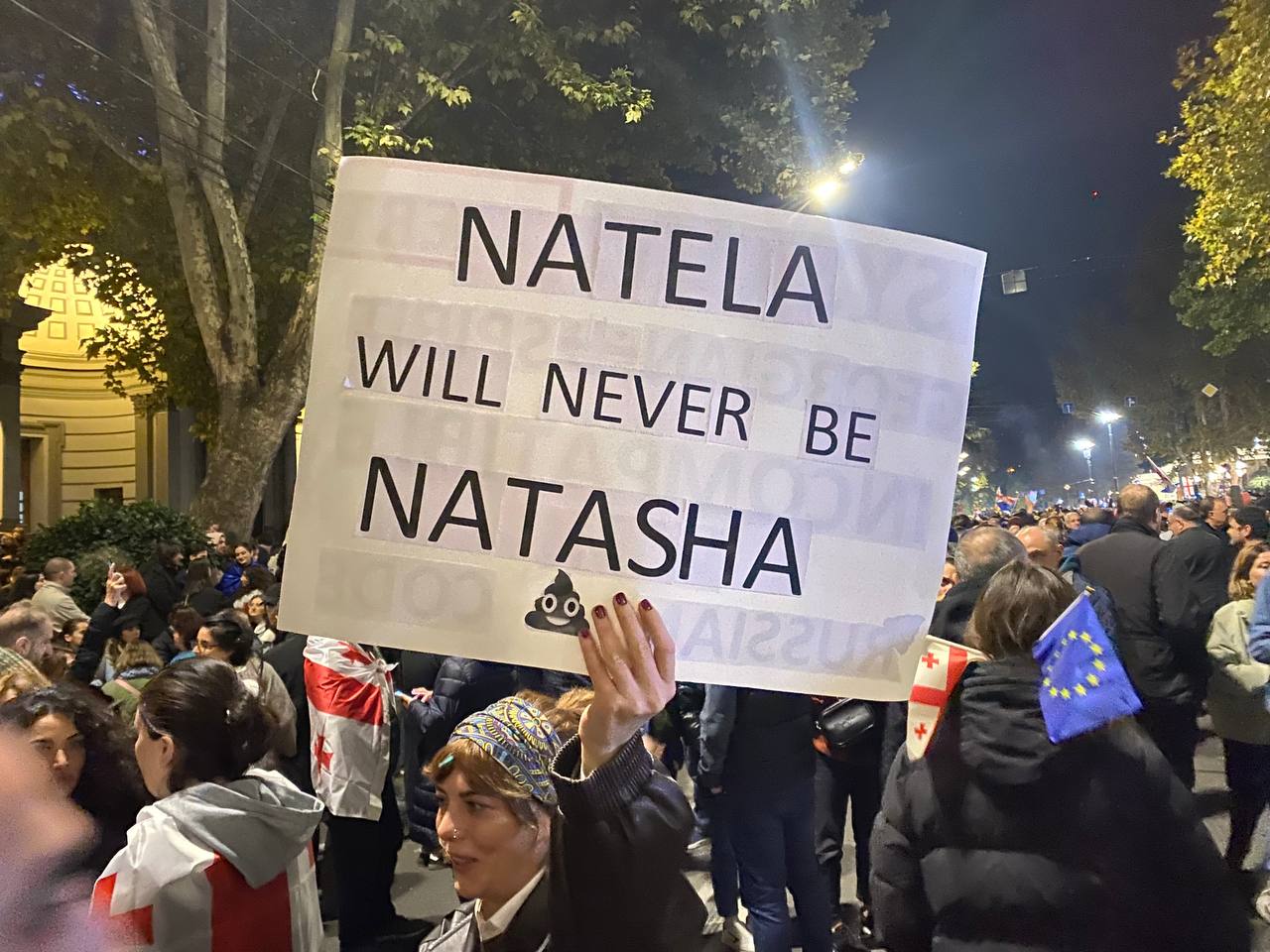
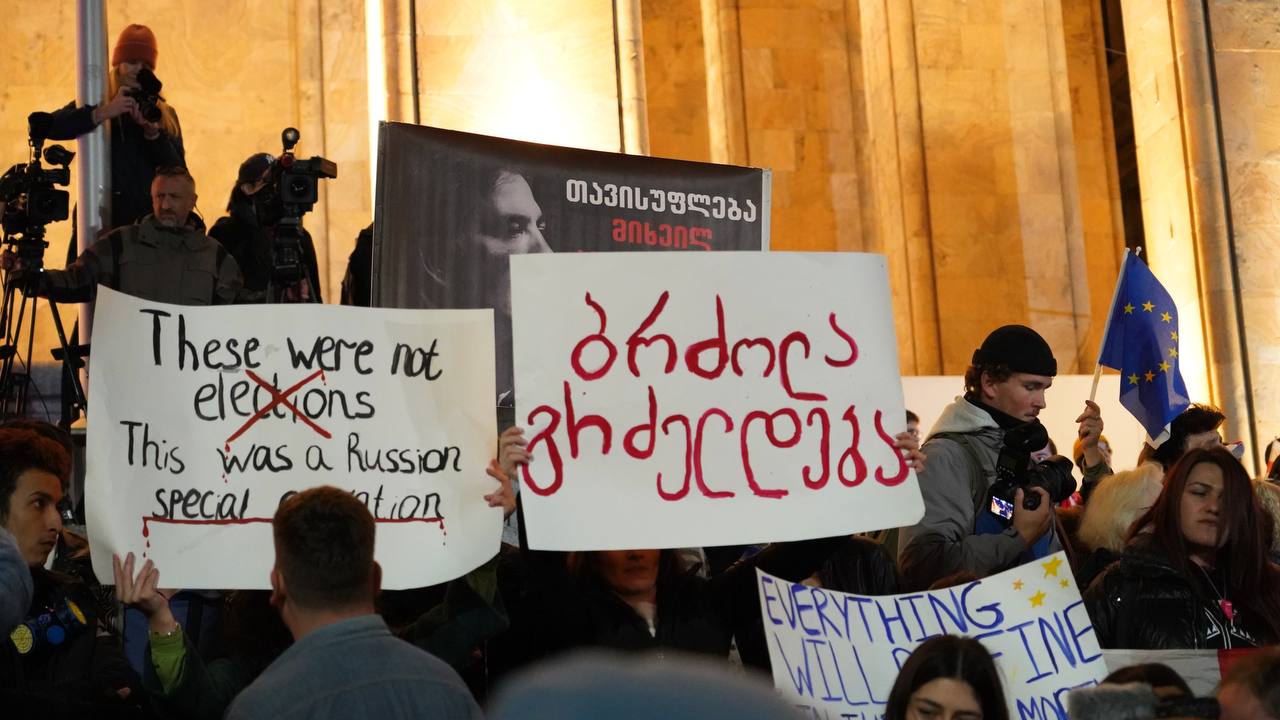
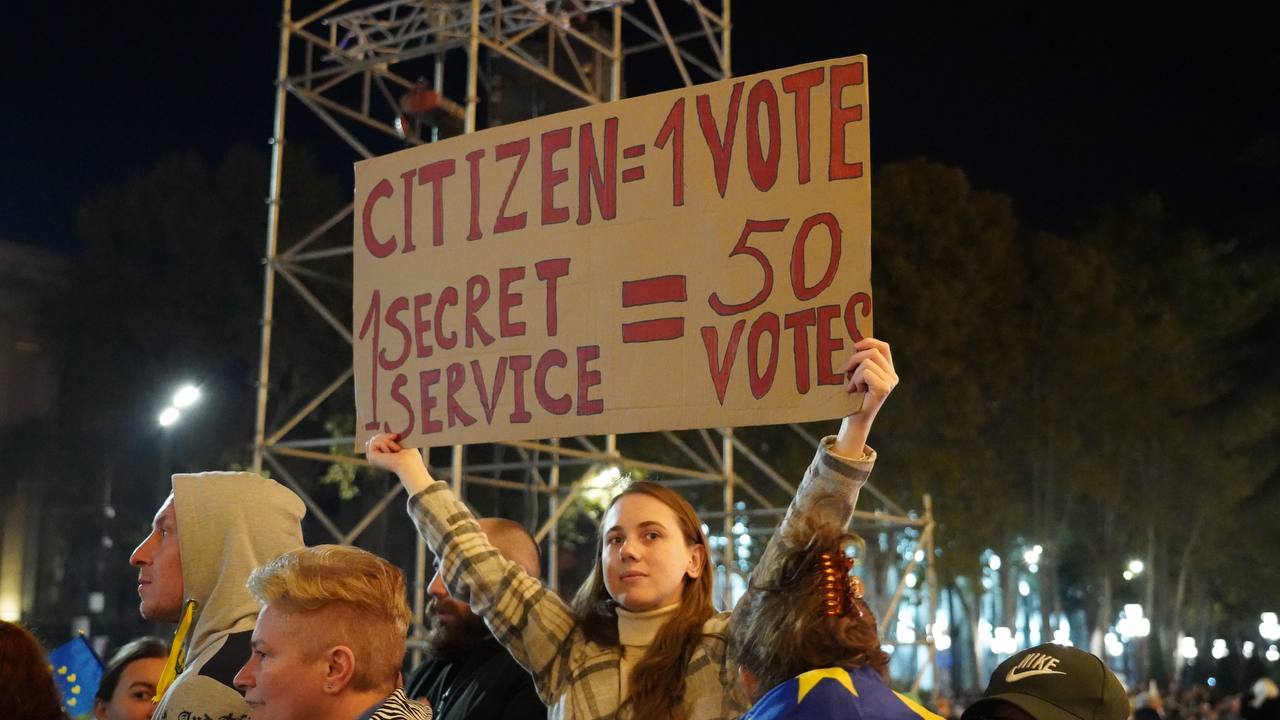
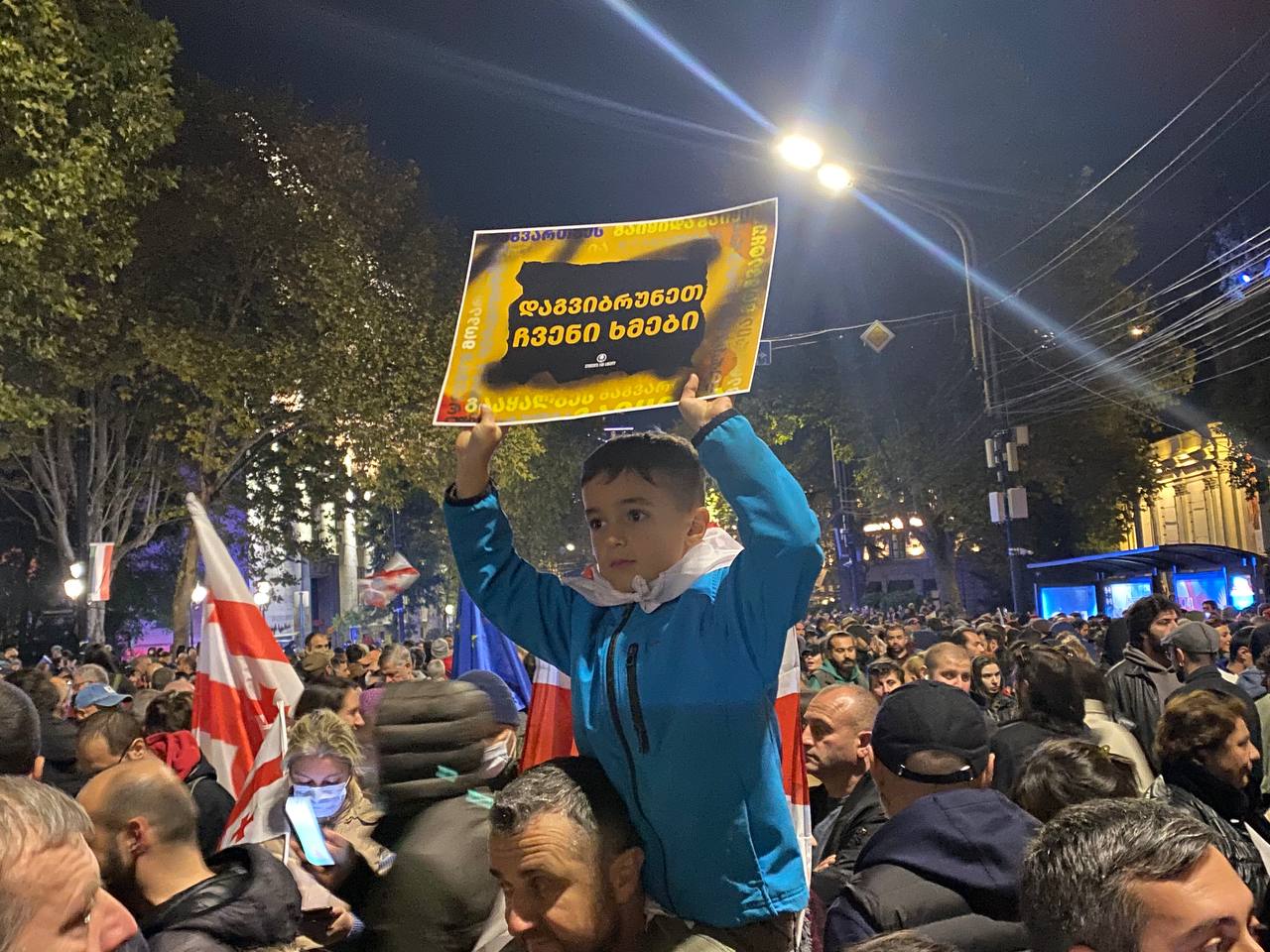
All the leaders agree that the elections were “not falsified but stolen,” as they put it. None of the parties that made it into parliament intend to use their mandates or take their seats.
The main demand at the rally is for new elections with international observers present.
The ruling authorities have no intention of meeting this demand. Parliament Speaker Shalva Papuashvili stated that the ruling party has enough seats to begin work in the new parliament even without the opposition’s participation. According to him, “Georgian Dream” won 89 seats in the 150-seat parliament as a result of the election.
Hungarian Prime Minister Viktor Orbán, accompanied by several members of his government, arrived in Georgia on an unexpected visit. Another surprise was his arrival at the Marriott Hotel in central Tbilisi just as Georgian opposition leaders were meeting with Western diplomats. The crowd booed Orbán and practically escorted him out onto the street.
Observers suggest that by involving the leader of an EU member state in the election situation, “Georgian Dream” is attempting to lend legitimacy to the election.
Western reaction
However, Orbán is the only European leader to congratulate “Georgian Dream” on its election victory at this stage. Other leaders are in no hurry to do so.
The European Union criticized Orbán’s visit to Georgia, calling it “premature.”
“Orbán does not speak on behalf of the European Union,” said a statement released by the EU after the elections in Georgia. The statement, signed by the ministers of 13 EU countries—Czech Republic, Denmark, Germany, Estonia, Finland, France, Ireland, Lithuania, the Netherlands, Luxembourg, Poland, Portugal, and Sweden—is titled: “Violation of electoral integrity is incompatible with the standards expected of an EU candidate.”
“We are deeply concerned about the situation in Georgia. International observers have documented violations both during the election campaign and on election day. We condemn any breaches of international standards for conducting free and fair elections. We share these concerns and call for an impartial investigation of complaints and correction of identified violations.
In this challenging time, we stand with the Georgian people. It is crucial that protests, and especially the authorities’ response, remain peaceful. Electoral integrity violations are incompatible with the standards expected of an EU candidate.
Such violations betray the legitimate European aspirations of the Georgian people. Adherence to the rule of law and the conduct of free and fair elections are essential components of Georgia’s progress towards the EU. We criticize Prime Minister Orbán’s premature visit to Georgia. He does not speak on behalf of the European Union,” the statement reads.
Sweden has announced the cessation of all direct cooperation with the leadership of Georgia, which includes the suspension of support for state infrastructure and programs totaling approximately €17.37 million per year.
At the same time, a new aid line of about €2.17 million has been announced to support civil society in Georgia.
This was reported by Benjamin Dusa, Sweden’s Minister for International Development and Foreign Trade. He cited the violations documented by international observers during the parliamentary elections on October 26 as the reason for this decision. Dusa emphasized that actions against civil society contradict the norms and values of the European Union. He noted that cooperation could be resumed if Georgia returns to the path of Eurointegration.
Canada’s Ministry of Foreign Affairs and International Trade stated that it would review its relations with the leadership of Georgia: “Canada is concerned about widespread voter intimidation and vote-buying.”
Observers’ conclusions
Preliminary assessments from international observation missions in Georgia, including the assessment by the OSCE/ODIHR mission, can be read here.
The Georgian organization “My Vote,” which monitored the election day, is demanding the annulment of results from nearly 200 polling stations, where over 300,000 people voted—approximately 10 percent of the total number of voters.
The organization explains this by uncovering a scheme of fraud that involved the use of fake identification documents.
“First, the Central Election Commission changed the rules, allowing individuals who agreed to participate in the fraud to be placed behind the registration desks. Then, in several areas, the registrars’ tables were positioned so close to the walls that observers could not see the screens of the document verification devices. Also, under various pretexts, observers were expelled from the polling stations, or they were distracted by organizing fights in the streets. ‘Citizens’ with fake documents were transported by bus from one polling station to another,” representatives of the organization “My Vote” stated.
The independent observation mission ISFED reported numerous violations and declared that the results of the parliamentary elections on October 26 cannot be considered a true reflection of the will of the Georgian voters.











